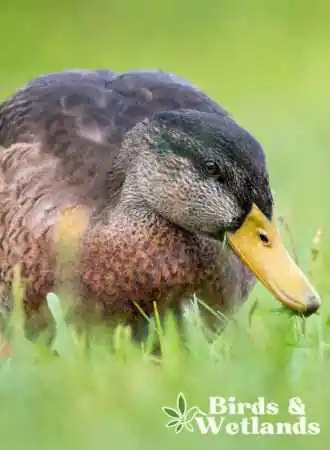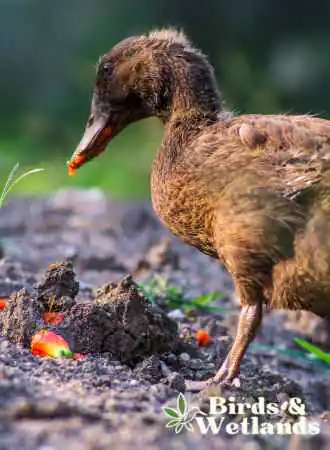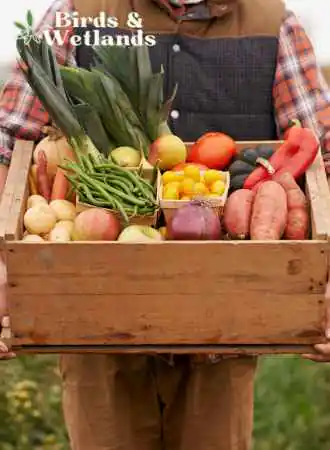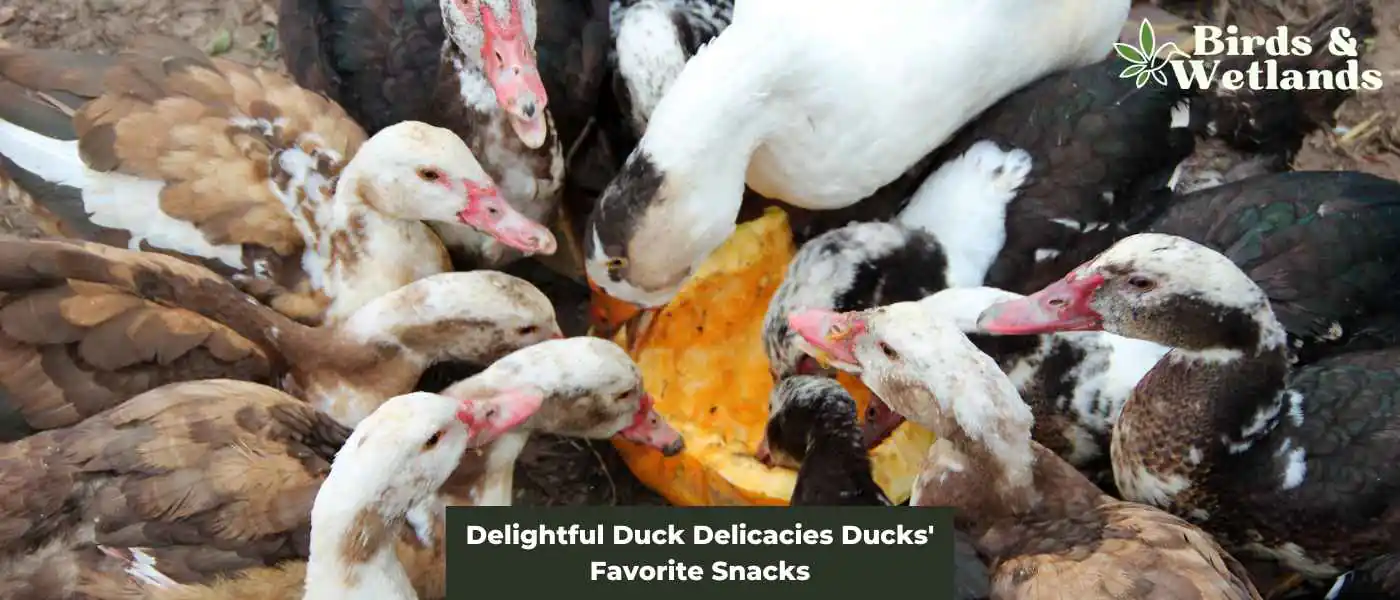Are you a duck enthusiast looking to spoil your feathered friends with the tastiest treats? Look no further!
What are the best treats for ducks?
Ducks enjoy a variety of snacks in their natural diet, including aquatic plants, insects, small fish, seeds, and snails. They particularly love treats like earthworms, mealworms, and tadpoles. However, when feeding ducks in a pond or park, stick to healthier alternatives like halved seedless grapes, chopped lettuce, oats, birdseed, frozen peas, or corn.
There are many snacks and treats that ducks enjoy, and some of them are even healthy for them. Some of the best treats for ducks include algae, strawberries, mealworms, dandelions, clovers, and scrambled eggs.
Ducks also enjoy eating crickets, kale, feeder fish, earthworms, and marigolds. These treats not only provide essential nutrients for ducks but also serve as a great way to bond with them.
What Do Ducks Like to Eat?
Ducks are omnivorous birds that enjoy a wide variety of foods. They have a diverse diet that includes both plant and animal matter. In this section, we will explore some of the foods that ducks love to eat.
Ducks’ Favorite Snacks

Ducks enjoy a variety of snacks, such as insects, worms, grubs, mosquitoes, wasps, spiders, or any bug that they can grab. Berries, nuts, fruits, seeds, grain, and oats are also popular treats for ducks. They also like to eat dandelions, grass, weeds, and clovers.
What can ducks eat besides duck food?
Ducks can eat a variety of foods besides commercially available duck food. In the wild, ducks consume aquatic plants, seeds, small fish, insects, and other small aquatic creatures. If you are raising ducks or have pet ducks, you can supplement their diet with the following:
- Fresh or frozen vegetables (chopped or grated)
- Leafy greens (kale, lettuce, spinach)
- Fresh or frozen fruits (cut-up grapes, berries)
- Grains (cooked rice, quinoa, barley)
- Protein sources (mealworms, earthworms, small fish)
It’s essential to ensure that ducks receive a balanced diet with the proper nutrients to maintain their health. Consult with a veterinarian or an expert in duck care to determine the best diet for your specific duck breed or species.
Introducing a wide variety of foods to baby ducks at an early age can encourage them to accept a diverse diet as they grow. A balanced and varied diet is essential for the ducks’ overall health and well-being.

Black Larvae
High Nutritional Value: Rich in protein, calcium, and other essential nutrients.
Boosts Calcium Intake: With 50-75 times more calcium than mealworms

UCM Dried Mealworms
Nutrient-Dense: Packed with essential vitamins and minerals.
High Protein Content: With 53% protein,
What Fruits and Vegetables Can Ducks Eat?

Ducks can eat a variety of fruits, including apples, bananas, grapes, and watermelon. They also enjoy a range of berries, such as strawberries, raspberries, and blueberries. Ducks can also eat the seeds and pulp of fruits like pumpkins and squash.
Ducks eat a variety of vegetables, including leafy greens, root vegetables, and stalks. They also enjoy eating weeds and herbs. Ducks can eat the leaves and stems of plants like lettuce, spinach, and kale. They can also eat the stalks of vegetables like broccoli and Brussels sprouts.
Ducks can eat a wide variety of vegetables, including carrots, peas, green beans, and sweet potatoes. They also enjoy leafy greens like lettuce, spinach, and kale. Ducks can also eat the stalks of many veggies like Brussels sprouts and broccoli.
| Fruit | |
|---|---|
| Apples | Can Ducks Munch on Apples? |
| Bananas | Are Bananas Good for Ducks? |
| Blueberries | Feeding Ducks Blueberries |
| Cantaloupe | Cantaloupe Treats for Ducks |
| Cherries | Can Ducks Enjoy Cherries? |
| Grapes | Are Grapes Safe for Ducks? |
| Lemons | Sour Citrus for Ducks? |
| Mango | Tropical Delight for Ducks |
| Oranges | Citrus Treats for Ducks |
| Peaches | Juicy Peaches for Ducks |
| Pears | Pears: A Duck’s Delight? |
| Strawberries | Strawberry Treats for Ducks |
| Tomatoes | Can Ducks Eat Tomatoes? |
| Watermelon | Refreshing Watermelon for Ducks |
| Vegetable | Anchor Link |
|---|---|
| Asparagus | Can Ducks Dine on Asparagus? |
| Beets | Are Beets Good for Ducks? |
| Brussel Sprouts | Feeding Ducks Brussel Sprouts |
| Cabbage | Can Ducks Munch on Cabbage? |
| Cauliflower | Is Cauliflower Safe for Ducks? |
| Cucumber | Refreshing Cucumber for Ducks |
| Grass | Ducks Eating Grass: Is It Safe? |
| Lettuce | Leafy Greens for Ducks |
| Onions | Can Ducks Eat Onions? |
| Peppers | Feeding Ducks Peppers |
| Spinach | Can Ducks Enjoy Spinach? |
| Squash | Squash: A Healthy Treat for Ducks |
| Sweet Potatoes | Are Sweet Potatoes Good for Ducks? |
Feeding Ducks
When feeding ducks in the wild, it is important to provide a balanced diet that includes both animal and plant matter. Ducks need a mix of protein, carbohydrates, and fats to stay healthy. Feeding ducks is a fun activity, but it is important not to overfeed them. Overfeeding ducks can lead to health problems and can also cause pollution in the water.

Healthy Treats for Ducks
Ducks are omnivorous and love to eat a variety of foods, including treats. Treats are a great way to supplement a duck’s diet and provide them with extra nutrients. However, it’s important to make sure that the treats are healthy and not harmful to the ducks. In this section, we will discuss some healthy treats for ducks and what they like to eat.
Healthy Snacks for Backyard Ducks

Providing healthy treats for your backyard ducks can be an enjoyable way to supplement their diet and offer them variety. Here is a list of healthy treats that can be given to your ducks:
- Leafy greens: Chopped lettuce, kale, spinach, or Swiss chard provide valuable nutrients and are easily digestible. (Iceberg lettuce has little value so opt for other types).
- Vegetables: Ducks enjoy chopped or grated carrots, zucchini, cucumber, broccoli, cauliflower, and pumpkin.
- Fruits: Offer cut-up grapes, berries, watermelon, or other soft fruits in moderation, as they can be high in sugar.
- Peas and corn: Fresh or thawed from frozen, these vegetables are a popular treat among ducks.
- Grains: Cooked grains like rice, quinoa, barley, or oats can be given as an occasional treat.
- Mealworms and earthworms: These insects are a natural source of protein and can be a welcome addition to a duck’s diet.
- Small fish: Minnows or other small fish can be given as a treat, especially for diving ducks who enjoy catching fish in the wild.
Healthy Treats
Ducks love fresh fruits and vegetables. Some of the best vegetables to feed ducks include peas, cucumbers, zucchini, broccoli, corn, chard, cabbage, kale, squash, and carrots. These vegetables are rich in vitamins and minerals that are essential for a duck’s health.
In addition to vegetables, ducks also enjoy fruits such as watermelon, strawberries, blueberries, and raspberries. These fruits are high in antioxidants, which can help boost a duck’s immune system.
| read | Is Bread Safe for Ducks? |
| Rice | Can Ducks Enjoy Rice? |
| Oats | Feeding Ducks Oats |
| Sunflower Seeds | Sunflower Seeds: A Duck Treat |
| Bird Seed | Can Ducks Eat Bird Seed? |

Quality Duck Feed
It’s important to provide ducks with a high-quality duck feed that contains all the nutrients they need to stay healthy. A good quality duck feed should contain at least 16% protein, vitamins, and minerals. Ducks should have access to duck feed at all times, as well as fresh water.
Best Waterfowl Feed
Delightful Feeding Experience
Transform your backyard into a scenic waterfowl habitat and enjoy an interactive feeding experience with Natural Waterscapes Waterfowl Floating Food.

Pros
- Nutritious Food: Natural Waterscapes Waterfowl Floating Food is specifically designed to provide essential nutrients to waterfowl, including swans, geese, and ducks, helping them maintain a healthy diet.
- Convenient: The food comes in resealable packaging, making it easy to store and use as needed. It is also easy to handle and transport.
- Floating Formula: The floating formula of the food allows it to remain on the surface of the water, making it easier for waterfowl to eat and minimizing the risk of water contamination.
- Attracts Waterfowl: The food is formulated to attract various waterfowl species, including swans, geese, and ducks, to your pond, lake, or other water body, providing an opportunity to observe and enjoy these beautiful creatures.
- Environmentally Friendly: Natural Waterscapes Waterfowl Floating Food is made with environmentally friendly ingredients and does not contain any harmful preservatives, making it safe for both waterfowl and the environment.
Cons
- Shelf Life: The food’s shelf life may be limited compared to other types of waterfowl food due to its natural ingredients and lack of preservatives. This means you may need to use it up quickly after opening the package to prevent it from going bad.
What Are Good Treats for Ducks?
Good treats for ducks include fresh fruits and vegetables, as well as cooked grains such as oats, barley, and wheat. Mealworms, crickets, and earthworms are also good treats that provide protein.
| Almonds | Are Almonds Safe for Ducks? |
| Pecans | Feeding Ducks Pecans |
| Peanuts | Can Ducks Munch on Peanuts? |
What Snacks to Avoid for Ducks?
There are certain snacks that should be avoided when feeding ducks, as they can cause health issues or provide little nutritional value. Some of these snacks include:
- Popcorn: Popcorn hulls and kernels are difficult for ducks to digest, and they can become lodged in their throat and decay over time. This can lead to discomfort or even infections.
- Cornflakes: Cornflakes and other cereals provide very little nutritional value to ducks and are high in sugar and other additives. Feeding ducks these types of snacks can contribute to obesity, malnutrition, and other health problems.
- Citrus fruits: Avoid citrus fruits like oranges, lemons, and grapefruits, as they are highly acidic and can cause digestive upset in ducks. Stick to milder fruits like grapes, berries, or watermelon as occasional treats.

What Do Ducks Like to Eat for Treats?
Ducks are not picky eaters and will eat almost anything you give them. However, they do have some preferences. Ducks love leafy greens such as kale and spinach, as well as fruits like watermelon and berries. They also enjoy grains such as oats, barley, and wheat.
| Meat | Can Ducks Eat Meat? |
| Shrimps | Feeding Ducks Shrimps |
| Snails and Slugs | Can Ducks Eat Snails and Slugs? |
| Chicken Feed | Is Chicken Feed Safe for Ducks? |
Treats for Ducks and Chickens
Ducks and chickens can eat many of the same treats. Vegetables, fruits, and grains are all good treats for both ducks and chickens. However, it’s important to make sure that the treats are not harmful to either animal.
Duck Treats for Ducks

In addition to the treats mentioned above, there are many other treats that ducks love. Some of these include algae, dandelions, clovers, feeder fish, and marigolds. These treats provide additional nutrients and variety to a duck’s diet.
Overall, providing healthy treats for ducks is a great way to supplement their diet and keep them happy and healthy. By offering a variety of fruits, vegetables, and grains, you can ensure that your ducks are getting all the nutrients they need.
Best Duck Feed Pellets
Are you a duck owner looking for the perfect feed to keep your feathered friends happy and healthy? Look no further than Purina Duck Feed Pellets! With their nutritionally balanced formula and high-quality ingredients, these pellets are the ultimate solution for providing your ducks with the nutrition they need to thrive.
Pros
- Complete Nutrition: Purina Duck Feed Pellets are nutritionally balanced to provide all the essential vitamins and minerals that ducks need to stay healthy and strong.
- Easy to Digest: The pellets are specially formulated to be easy to digest, which makes them ideal for ducks of all ages.
- Promotes Growth and Development: With its balanced nutrition formula, Purina Duck Feed Pellets are designed to support healthy growth and development in ducks.
- Suitable for All Breeds: Whether you have domestic ducks or wild ducks, Purina Duck Feed Pellets are suitable for all breeds of ducks.
- Trusted Quality: Purina has been producing high-quality animal feed for over 100 years, so you can trust that your ducks are getting the best possible nutrition with Purina Duck Feed Pellets.
Cons
- Cost: Compared to other types of duck feed on the market, Purina Duck Feed Pellets can be slightly more expensive. However, many customers feel that the high-quality ingredients and balanced nutrition formula are worth the extra investment.
- Pellet Size: Some customers have noted that the pellet size of Purina Duck Feed Pellets can be quite large, which may not be suitable for smaller or younger ducks. However, many customers have reported that the pellets can easily be broken up or soaked in water to make them easier to eat.
FAQs on Snacks for Ducks
What are ducks favorite foods?
Ducks enjoy a varied diet, and their favorite foods may depend on the species and their natural habitat. Generally, ducks like to eat aquatic plants, seeds, small fish, insects, and other small aquatic creatures. Dabbling ducks primarily feed on plant material, while diving ducks may have a diet that includes more small fish and underwater vegetation. Avoid giving them junk food or snacks with very little nutritional value.
What are good treats for ducks?

When offering treats to ducks, it’s essential to provide them with healthy options that complement their natural diet. Some good treats for ducks include:
- Chopped leafy greens (lettuce, kale, spinach)
- Cut-up grapes
- Peas (fresh or thawed from frozen)
- Corn (fresh or thawed from frozen)
- Chopped vegetables (carrots, zucchini, cucumber)
- Mealworms or earthworms
Keep in mind that treats should only make up a small part of a duck’s diet, and their primary source of nutrition should come from their regular food.
What Foods Can Make A Ducks Throats Itchy?

- Dry or crumbly food: Feeding ducks food that is excessively dry or crumbly can potentially cause irritation in their throats, especially if they don’t have access to clean water to help them swallow the food properly.
- Large or hard food items: Offering ducks large or hard food items, such as uncooked grains, large seeds, or large chunks of fruits and vegetables, might be difficult for them to swallow and could cause discomfort or irritation.
Moldy or spoiled food: Feeding ducks moldy or spoiled food can lead to bacterial, viral, or fungal infections, which may cause inflammation and discomfort in their throats.
Can I Give Ducks Canned Vegetables?
Avoid feeding ducks canned vegetables, as they often contain added salt, preservatives, or other additives that can be harmful to ducks. High levels of sodium in a duck’s diet can lead to health issues and imbalances.
Instead, opt for fresh or frozen vegetables that have been thoroughly washed and chopped into small, manageable pieces for the ducks. Some suitable vegetables to offer ducks include peas, corn, lettuce, kale, spinach, and chopped carrots.



